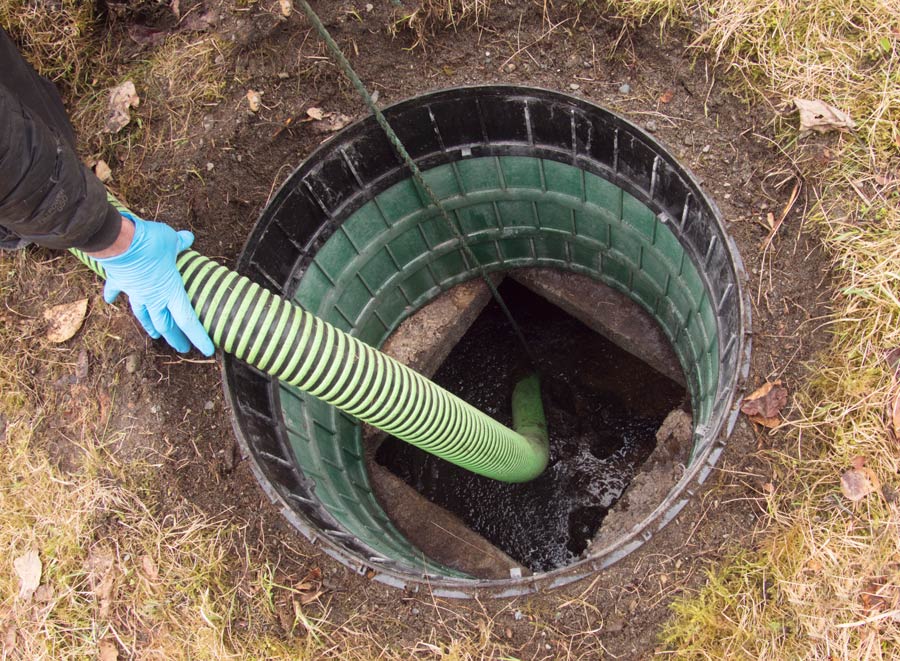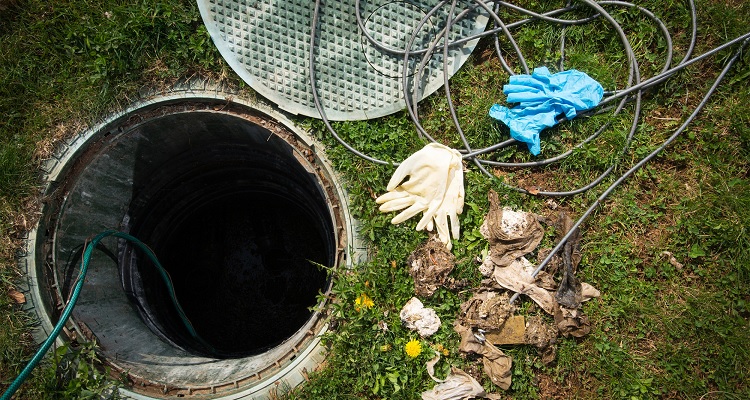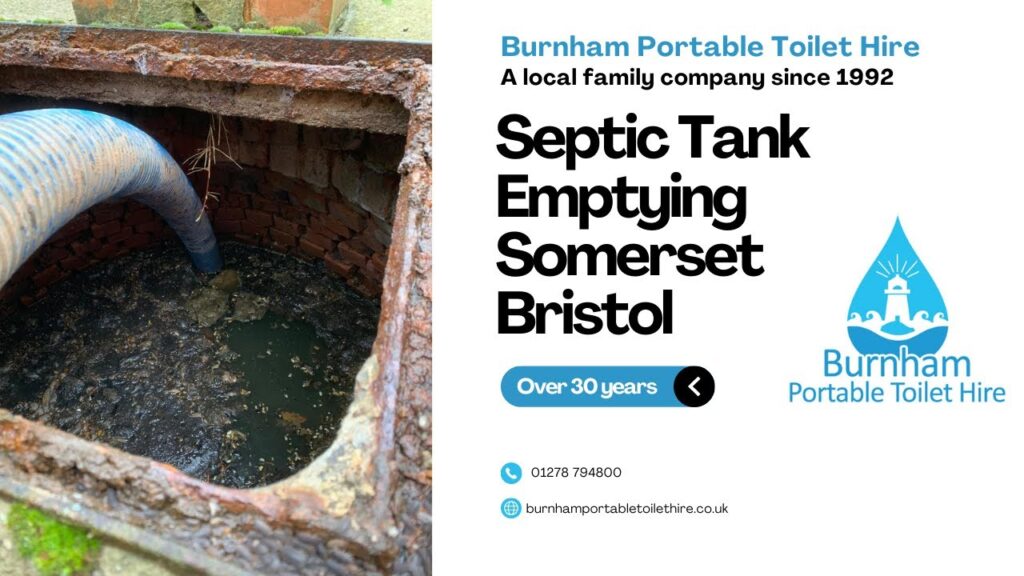In this article, you will gain a comprehensive understanding of the cost of emptying a septic tank in the UK, as well as the various factors that influence pricing for waste removal. From exploring the different methods of emptying septic tanks to analyzing the geographical location and size of the tank, this article will equip you with the knowledge needed to navigate the cost considerations associated with septic tank maintenance in the UK. Whether you are a homeowner or a business owner, this article will provide valuable insights to help you make informed decisions about the maintenance and upkeep of your septic tank.
Factors Affecting the Cost of Emptying a Septic Tank
Tank Size
The size of the septic tank is one of the main factors that affect the cost of emptying it. Larger tanks require more time and effort to pump out, resulting in higher costs. It is important to know the size of your septic tank before contacting a waste disposal service to get an accurate estimate of the cost.
Accessibility
The accessibility of your septic tank also plays a role in determining the cost of emptying it. If your tank is located in a difficult-to-reach area, such as a narrow alleyway or a steep slope, the waste removal service may need to use additional equipment or take extra precautions, which can increase the overall cost.
Location
The location of your property can have an impact on the cost of emptying your septic tank. Waste disposal services may charge higher rates for properties that are located in remote or rural areas, as they may need to travel a longer distance or encounter more challenging road conditions. Urban areas may also have different pricing due to higher operating costs.
Level of Waste
The amount of waste accumulated in your septic tank will also affect the cost of emptying it. If the tank is almost full or has a high concentration of solids, it will require more time and effort to pump out and dispose of the waste. Consequently, the cost of emptying a tank with a higher level of waste will be higher compared to one with lower levels.
Frequency of Emptying
The frequency at which you have your septic tank emptied can impact the cost as well. Regular maintenance and emptying of the tank can prevent it from getting too full, which reduces the risk of blockages and costly repairs. If you let the tank fill up completely before having it emptied, it can be more challenging and time-consuming, resulting in higher costs.
Average Costs of Emptying a Septic Tank in the UK
Size of the Tank
The size of the septic tank is a significant factor in determining the average cost of emptying it. On average, the cost can range from £200 to £400 for a small tank, while larger tanks may cost between £400 and £600 or more to empty. It’s important to note that these cost ranges are estimates, and prices can vary depending on various factors such as location and accessibility.
Type of Waste Disposal Service
The type of waste disposal service you choose can also affect the cost of emptying your septic tank. There are different types of services available, ranging from local council services to private waste disposal companies. Council services may be more affordable, but they may have limited availability or longer waiting times. Private companies often offer more flexibility and convenience but may come at a higher cost.
Geographical Location
The geographical location of your property can impact the average cost of emptying a septic tank. Costs may be higher in certain areas due to higher operating expenses, transportation costs, or regional pricing variations. It’s always a good idea to research and compare prices from different waste disposal services in your area to get the best deal.
Additional Services
Some waste disposal companies may offer additional services that can affect the overall cost of emptying your septic tank. These additional services can include maintenance inspections, repairs, or the installation of new components. While these services can be beneficial, they may come at an additional cost. Consider your specific needs and budget before opting for any additional services.

Calculating the Cost of Emptying a Septic Tank
Preliminary Assessment
Before providing an estimate for emptying your septic tank, waste removal services typically conduct a preliminary assessment of your tank and its surroundings. This assessment helps them determine factors such as tank size, accessibility, and the level of waste. It’s important to provide accurate information during this assessment to ensure an accurate estimate.
Quotation
Based on the preliminary assessment, the waste removal service will provide you with a quotation for the cost of emptying your septic tank. This quotation should include all the relevant details, such as the estimated cost, the scope of work, and any additional services or charges. It’s a good idea to compare multiple quotations from different service providers to ensure you get the best value for your money.
Additional Charges
In addition to the basic cost of emptying the septic tank, there may be additional charges that you need to consider. These charges can include fees for extra equipment, travel expenses, or any unforeseen complications that may arise during the emptying process. It’s essential to clarify any potential additional charges with the waste removal service upfront to avoid any surprises on the final bill.
Payment Terms
Discussing the payment terms with the waste removal service is crucial to avoid any misunderstandings or delays. Some companies may require full payment upfront, while others may offer payment plans or accept payment upon completion of the job. Make sure to clarify the payment terms and agree on a method that works best for you before proceeding with the emptying of your septic tank.
Waste Disposal Methods for Septic Tanks
Traditional Septic Tank Emptying
Traditional septic tank emptying involves pumping out the accumulated waste from the tank using vacuum pumps. Once the waste is pumped out, it is transported to a licensed waste disposal facility for proper treatment and disposal. This method is commonly used for regular maintenance and emptying of septic tanks.
Septic Tank Desludging
Septic tank desludging is a method used when the solids in the tank have accumulated to a high level. It involves removing the thick sludge layer at the bottom of the tank to restore its capacity. Desludging is typically more time-consuming and requires specialized equipment, which can result in higher costs compared to regular emptying.
Septic Tank Replacement
In some cases, septic tanks may be beyond repair or have reached the end of their lifespan. In such situations, replacing the septic tank becomes necessary. Septic tank replacement involves removing the old tank and installing a new one. The cost of septic tank replacement can vary depending on factors such as tank size, accessibility, and any additional services required during the replacement process.

Choosing a Professional Septic Tank Waste Removal Service
Certifications and Experience
When selecting a waste removal service for emptying your septic tank, it is important to consider their certifications and experience. Look for companies that have proper licenses and certifications to handle septic tank waste. Experienced professionals can ensure the job is done safely and efficiently, reducing the risk of any complications.
Customer Reviews and Recommendations
Checking customer reviews and recommendations can provide valuable insights into the quality of service offered by waste removal companies. Look for testimonials or reviews from previous customers to get an idea of their experiences. Positive reviews and recommendations indicate a reliable and trustworthy service provider.
Quality of Equipment
The quality of the equipment used by the waste removal service is another crucial factor to consider. Modern and well-maintained equipment can ensure efficient and effective emptying of your septic tank. Inquire about the type of equipment used by the company and ensure that it meets industry standards.
Responsiveness and Punctuality
Timeliness and responsiveness are important qualities to look for in a waste removal service. A reliable company should respond to your inquiries promptly and arrive on time for scheduled appointments. This level of professionalism indicates their commitment to delivering quality service.
Tips for Reducing the Cost of Septic Tank Emptying
Regular Maintenance and Cleaning
Regular maintenance and cleaning of your septic tank can help reduce the frequency of emptying and prevent excessive buildup of waste. This can result in long-term cost savings as well as extending the lifespan of your septic tank. Follow recommended maintenance schedules and have your tank inspected and pumped out at regular intervals.
Minimize Water Usage
Reducing water usage in your household can help prevent your septic tank from filling up quickly. Consider using water-efficient appliances, fixing any leaks promptly, and practicing water-saving habits such as shorter showers and only running full loads of laundry and dishes. This can reduce the load on your septic system and ultimately lower the frequency of emptying.
Proper Waste Disposal
Proper waste disposal is essential for the optimal functioning of your septic tank. Avoid flushing non-biodegradable items, chemicals, grease, or excessive amounts of food waste down the drain, as they can cause blockages or damage to the septic system. Implementing good waste management habits can help prevent costly repairs or premature tank emptying.
Avoid Septic Tank Additives
There are various septic tank additives available in the market claiming to improve the performance of your septic system. However, their effectiveness is often questionable, and they can sometimes cause more harm than good. Consult with a professional septic tank service provider before using any additives, as they can interfere with the natural breakdown of waste in your tank and potentially lead to costly issues.

The Importance of Regular Septic Tank Emptying
Preventing Blockages and Backup
Regular emptying of your septic tank helps prevent blockages and backups in your plumbing system. When your tank becomes too full, it can lead to sewage backups in your drains or toilets, causing inconvenience and potential health hazards. Emptying the tank at recommended intervals reduces the risk of blockages and ensures the smooth operation of your plumbing.
Avoiding Foul Odors
A septic tank that is not emptied regularly can emit foul odors. These odors can permeate your property and create an unpleasant living environment. Regular emptying of the septic tank prevents the buildup of waste and the associated odor, ensuring a fresh and pleasant atmosphere in and around your home.
Protecting the Environment
Proper maintenance and emptying of your septic tank contribute to the protection of the environment. When septic tanks are not regularly emptied, they can overflow and release untreated wastewater into the surrounding soil and water sources. This can contaminate the environment, including groundwater and nearby bodies of water. Regular emptying helps prevent such environmental pollution and promotes a healthier ecosystem.
Maintaining a Healthy Home
A well-maintained septic tank is essential for maintaining a healthy home. When a septic tank becomes too full, it can lead to the growth of harmful bacteria and pathogens. These can potentially enter your home’s water supply, causing health issues for you and your family. Regularly emptying the septic tank ensures that waste is properly disposed of, minimizing the risk of contamination and maintaining a healthy living environment.
Common Problems with Septic Tanks and Their Impact on Cost
Clogged Pipes and Drains
Clogged pipes and drains are common problems associated with septic tanks. When the tank is not emptied regularly, solid waste can accumulate and clog the pipes, leading to slow drains or complete blockages. Clearing the clogs and addressing any resulting damage can be costly, making regular tank emptying a more cost-effective preventive measure.
Leaking or Cracked Tanks
Over time, septic tanks may develop cracks or leaks, jeopardizing their functionality. These issues can occur due to factors such as shifting soil, corrosion, or damage from tree roots. If left unaddressed, leaking or cracked tanks can cause sewage leaks, soil contamination, and potential damage to your property. Regular emptying can help identify any issues early on and prevent costly repairs or tank replacements.
Root Intrusion
Tree and plant roots can intrude into septic tanks and their drainage fields, causing blockages and damage. Roots can penetrate pipes and tank walls, leading to leaks, clogs, and system failure. Regular tank emptying allows for inspections of the tank and its surroundings, allowing professionals to identify and address any root intrusion before it becomes a significant problem.
Malfunctioning Components
Septic tanks contain several components such as pumps, filters, and alarms that can malfunction over time. Regular emptying provides an opportunity to inspect and maintain these components, ensuring they are in proper working order. Identifying and addressing any issues with the components early on can help prevent costly repairs or replacements in the future.

Legal Requirements and Regulations for Septic Tank Emptying
Permits and Licenses
Emptying a septic tank may require permits and licenses depending on your location. Local authorities may have specific regulations in place to ensure proper waste disposal and protect public health and the environment. It is crucial to familiarize yourself with these requirements and ensure that the waste removal service you choose complies with all necessary permits and licenses.
Disposal Regulations
Apart from emptying the septic tank, the proper disposal of the waste is equally important. Different regions may have specific regulations regarding the disposal of septic tank waste. It is essential to work with a waste removal service that follows these regulations and disposes of the waste at licensed facilities, adhering to environmental guidelines.
Health and Safety Standards
Septic tank emptying involves the handling of potentially hazardous waste materials. Waste removal services must adhere to health and safety standards to protect their workers, customers, and the public. Ensuring that the service provider complies with relevant health and safety regulations guarantees a safe and responsible emptying process.
Environmental Protection Laws
Environmental protection laws govern the proper disposal and management of septic tank waste. The waste removal service you choose should comply with these laws to ensure that the waste is disposed of in an environmentally responsible manner. Responsible waste disposal helps prevent pollution and minimizes the impact on the environment.
Conclusion
Emptying a septic tank is an essential aspect of maintaining a healthy and functional septic system. Understanding the factors that affect the cost of emptying, the average costs in the UK, and the various waste disposal methods available can help you make informed decisions when it comes to septic tank maintenance. By choosing a professional waste removal service, implementing cost-saving tips, and adhering to legal requirements, you can ensure the longevity and optimal performance of your septic tank while minimizing any potential cost implications. Regular septic tank emptying not only protects your home, but it also contributes to a healthier environment for everyone.

